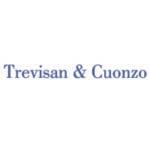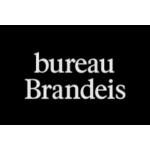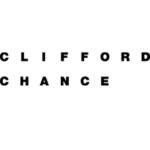-
What types of conduct and causes of action can be relied upon as the basis of a competition damages claim?
Preliminary Note About the Canadian Legal System: As a preliminary note relevant to the answers to the questions below, Canada is a federal, bijural (common and civil law) state consisting of ten provinces and three territories. The provinces and territories other than Quebec have common law legal systems while Quebec is a civil law jurisdiction for civil matters. This introduces substantive and procedural differences relevant to some of the questions answered below. With a view to providing a high-level national overview of Canadian competition litigation practice, questions have been answered with reference to the legal principles generally applicable in Canada’s common law jurisdictions (including the Federal Court and the Competition Tribunal). However, specific rules, particularly on procedural issues, may vary somewhat from jurisdiction to jurisdiction.
The Competition Act contains both criminal and civil provisions regulating conduct injurious to competition. Section 36 of Canada’s Competition Act establishes a cause of action for any person who has suffered loss or damage as a result of: (i) a breach of Part VI of the Competition Act (i.e., the criminal provisions), or (ii) failure to comply with an order of the Competition Tribunal or of a court under the Competition Act (collectively, Proscribed Conduct). Part VI of the Competition Act creates several offences in relation to competition, including: (i) conspiracy among competitors to fix prices, allocate markets, or lessen supply (s. 45); (ii) conspiracy among employers to fix wages or conditions of employment or not to solicit or hire each other’s employees (s. 45.1, effective as of June 2023); (iii) implementing in Canada a foreign directive from outside of Canada that would have contravened s. 45 if entered in Canada (s. 46); (iv) bid rigging (s. 47); (v) conspiracy relating to professional sports (s. 48); and (vi) making false or misleading representations (s. 52).
Parts VII.1 and VIII of the Competition Act specify practices that are not criminal offences but are civilly reviewable before the Competition Tribunal, such as refusal to deal, price maintenance, exclusive dealing, abuse of dominance, anticompetitive agreements falling outside the scope of s. 45, and mergers. Unlike the criminal provisions, reviewable practices do not give rise to a damages claim under s. 36 unless there has been a breach of an order issued by the Competition Tribunal in respect of a reviewable practice.
On June 20, 2024, significant amendments to the Competition Act that expand the availability of monetary recovery by private parties became law. These amendments — which form part of the third of three waves of significant amendments to the Competition Act since 2022 — create a new right of action for private litigants before the Competition Tribunal for non-criminal, civilly reviewable practices. Under the amendments, the s. 36 damages remedy remains available for claims relating to a breach of the criminal provisions of the Competition Act (Part VI) or failure to comply with an order of a court or the Competition Tribunal under the Competition Act. The new amendments enable private litigants to bring an application (with leave) before the Competition Tribunal seeking monetary recovery for civilly reviewable conduct under Parts VII.1 and VIII of the Competition Act. Under the amendments, the Tribunal may order (i) a party found to have engaged in anti-competitive conduct to pay an amount not exceeding the value of the benefit derived from the conduct, and (ii) for that amount to be distributed among the applicant and any other person affected by the conduct. This is a new remedy that is distinct from the s. 36 damages regime. As the new private right of action will come into force only on June 20, 2025, it remains to be seen whether the expansion of private remedies under the Competition Act results in an increase in private litigation before the Competition Tribunal of claims for which monetary remedies were previously unavailable.
-
What is required (e.g. in terms of procedural formalities and standard of pleading) in order to commence a competition damages claim?
A plaintiff can commence a Competition Act damages claim by filing a pleading in a court with jurisdiction over a claim under s. 36 of the Competition Act (discussed further in the response to Question 6, below).
The pleading must contain sufficient material facts to disclose a reasonable cause of action. A claim will fail to disclose a reasonable cause of action (and be vulnerable to a motion to strike) if, assuming the truth of the material facts pleaded, it is “plain and obvious” that the claim does not exist or has no reasonable chance of success.
Most claims for damages under s. 36 of the Competition Act are for conspiracy in breach of ss. 45 and 46 of the Act (which prohibits agreement among competitors to fix prices, allocate markets, or lessen supply and implements a foreign directive to do the same, respectively). To properly plead a breach of these provisions, a plaintiff must allege material facts supporting an agreement of the type prohibited by s. 45.
Private applications to the Competition Tribunal must satisfy a leave test before being permitted to proceed. Previously, leave was only permitted where the applicant’s business was “directly and substantially affected” by the challenged conduct. The Competition Tribunal has interpreted this standard to mean an impact on the whole of the business. Amendments to the Competition Act broaden this test, allowing businesses to challenge conduct even if it only affects part of their business. The Competition Tribunal will also be able to grant leave for civilly reviewable conduct if it believes it is “in the public interest” to do so, though this language remains to be interpreted.
-
What remedies are available to claimants in competition damages claims?
Section 36 of the Competition Act establishes a cause of action for recovery of damages equal to the loss suffered by a person resulting from the Proscribed Conduct specified in that section. This statutory cause of action does not provide for recovery for punitive or exemplary damages. However, the Supreme Court of Canada has held that the statutory cause of action in s. 36 does not oust common law or equitable causes of actions that can be brought alongside a s. 36 claim. As a result, plaintiffs claiming under s. 36 are not precluded from also claiming for common law or equitable causes of action such as unjust enrichment, unlawful interference with economic relations, or civil conspiracy arising from the same conduct alleged to breach the Competition Act. These common law and equitable causes of action can allow for broader remedies than are available under s. 36, such as punitive damages and restitutionary relief. A breach of s. 45 of the Competition Act can also supply the “unlawful act” element of a civil conspiracy claim.
In addition to damages, s. 36 allows a plaintiff to recover for an additional amount up to the full cost of any investigation of the matter and of proceedings under s. 36.
Under the new amendments, private litigants claiming for civilly reviewable conduct in the Competition Tribunal will be able to seek monetary recovery of an amount not exceeding the value of the benefit derived from the conduct.
Although the Competition Act does not provide a statutory basis for private plaintiffs to seek injunctive relief, provincial superior courts have relied on their inherent jurisdiction to issue interlocutory injunctive relief in a claim brought under s. 36. Such relief can restrain ongoing conduct alleged to breach Part VI of the Competition Act. A court’s jurisdiction to grant permanent injunctive relief in a claim under s. 36 remains an open question in Canadian law.
-
What is the measure of damages? To what extent is joint and several liability recognised in competition damages claims? Are there any exceptions (e.g. for leniency applicants)?
Damages recoverable under s. 36 of the Competition Act are limited to actual, single, damages in an amount equal to the damage or loss proven by the plaintiff to have suffered as a result of the Proscribed Conduct. To establish an entitlement to damages, a plaintiff must establish that (i) the defendant engaged in Proscribed Conduct; (ii) the plaintiff suffered a loss or injury; and (iii) there is a causal link between the plaintiff’s injury and the defendant’s conduct.
Conspirators are presumptively jointly and severally liable for injury resulting from conspiracy prohibited by the Competition Act. As a result, a plaintiff can sue to recover damages for conspiracy conduct from one or more – but not necessarily all – members of a conspiracy. It remains an open issue in Canadian law whether conspirators liable under s. 36 can recover from other members of a conspiracy through contribution and indemnity claims.
Although the Canadian Competition Bureau – the Canadian law enforcement agency responsible for enforcing the Competition Act – offers a leniency program, a party obtaining immunity or leniency under that program does not enjoy any special treatment in respect of private damages claims relating to the conduct for which immunity has been granted.
Under the new amendments, private parties will be able to seek monetary recovery of an amount equivalent to the “benefit” derived from the conduct, to be distributed among the applicant and any other person affected by the conduct “in any manner that the Competition Tribunal considers appropriate.” The amendments do not specify how this amount will be calculated.
The Competition Tribunal will also be able to impose any term necessary for the implementation of an order, including terms related to notifying potential claimants, specifying the time and manner for making a claim, specifying the eligibility of claimants, and specifying how unclaimed damages should be distributed.
-
What are the relevant limitation periods for competition damages claims? How can they be suspended or interrupted?
Section 36(4) of the Competition Act establishes a limitation period of two years from the later of (i) the day on which Proscribed Conduct was engaged in or (ii) the day on which any criminal proceeding relating to Proscribed Conduct was finally disposed of. The Supreme Court of Canada has held that the limitation period triggered by the occurrence of Proscribed Conduct is subject to this discoverability principle. The discoverability principle extends the limitation period related to the occurrence of Proscribed Conduct until the material facts on which the claim is based (i) are discovered, or (ii) ought to have been discovered by the exercise of reasonable diligence. The Supreme Court of Canada has also left open the possibility that fraudulent concealment can extend the limitation period in s. 36(4) if a defendant has fraudulently concealed the existence of a cause of action until a plaintiff has, or reasonably ought to have, discovered the fraud.
-
Which local courts and/or tribunals deal with competition damages claims?
Canada is a federal state, and its court system consists of (i) provincial-level courts (trial and appellate level), (ii) a Federal Court and Federal Court of Appeal, and (iii) the Supreme Court of Canada which hears appeals from the provincial and federal courts.
A claim for damages under s. 36 of the Competition Act can be commenced in any court of competent jurisdiction. This includes the superior courts of the provinces and the Federal Court. Provincial superior courts are courts of inherent jurisdiction which means they also have jurisdiction over any common law and equitable claims brought alongside a s. 36 damages claim. As a statutory court, the Federal Court only has jurisdiction over the s. 36 statutory damages claim and lacks jurisdiction over common law or equitable claims
Canada also has a specialist Competition Tribunal with jurisdiction over proceedings under the non-criminal provisions of the Competition Act. As a result of the new amendments, the Competition Tribunal will have jurisdiction to adjudicate private claims for monetary recovery under the civilly reviewable practices provisions of the Competition Act.
-
How does the court determine whether it has jurisdiction over a competition damages claim?
As noted above in the response to Question 6, s. 36 of the Competition Act vests subject matter jurisdiction over a damages claims in courts of competent jurisdiction, i.e., the provincial superior courts and the Federal Court. As a general matter, Canadian courts will assert jurisdiction over a Competition Act damages claim if the conduct is alleged to have caused harm in Canada.
A Canadian court will assume jurisdiction over a particular defendant — known as jurisdiction simpliciter — based on whether a matter has a “real and substantial connection” with the jurisdiction. At common law, jurisdiction simpliciter can be established based on (i) the presence of the party in the jurisdiction; (ii) consent to the court’s jurisdiction (for example, by attorning to the jurisdiction by filing a claim or a defense with the court); or (iii) the existence of a “real and substantial connection” with the jurisdiction. In applying the “real and substantial connection” test to Competition Act damages claims, the Supreme Court of Canada has held that the recognized presumptive connective factors entitling a court to assert jurisdiction prima facie over tort claims should apply. These factors are that (i) the defendant is domiciled or resident in a province; (ii) the defendant carries on business in a province; (iii) the tort was committed in a province, or (iv) a contract connected with the dispute was made in a province. Canadian courts have held that a tort will be considered as having been committed in a province where economic harm from the tort has been suffered in the province, regardless of where the conduct occurred. For example, Canadian courts have taken jurisdiction over Competition Act damages claims where a foreign defendant had no sales in Canada but the claim alleges that the defendant’s participation in a conspiracy caused harm in Canada.
The burden of showing a real and substantial connection establishing the court’s jurisdiction rests with the plaintiff. A plaintiff must first plead material facts to establish one of the connecting factors. The jurisdictional facts alleged in the pleading are presumed to be true if unchallenged by the defendant. A defendant challenging the court’s jurisdiction must file evidence rebutting the jurisdictional facts alleged in the pleading. The plaintiff may respond with evidence supporting the jurisdictional facts. A court hearing a jurisdictional challenge decides the issue on a lower standard than a balance of probabilities. On a jurisdictional challenge, the plaintiff must only establish a “good arguable case” that the jurisdictional facts can be proven.
-
How does the court determine what law will apply to the competition damages claim?
The Competition Act is a federal statute which applies throughout Canada. In a s. 36 damages claim, the court will apply the version of the Competition Act in force at the time of the conduct alleged. For example, the s. 45 conspiracy provision of the Competition Act — the primary criminal provision under which damages claims have been brought in Canada — was amended effective March 12, 2010. Prior to the amendment, s. 45 prohibited conspiracies that prevented or lessened competition “unduly”. The current version of s. 45 eliminated the anticompetitive effects requirement, and now proscribes the types of agreements among competitors captured by ss. 45(1)(a)-(c). Where a s. 36 damages claim arises from conduct alleged to have breached s. 45 that occurred before and/or after the amendment, the court will apply the version of s. 45 in force at the time of the conduct (and may apply both versions in a single action).
Where common law or equitable claims such as civil conspiracy or unjust enrichment are brought alongside a s. 36 Competition Act damages claims in a provincial superior court, the law applicable to those claims is the provincial law of the relevant province.
The standard of proof applicable to a s. 36 damages claim is the civil balance of probabilities standard.
-
What is the applicable standard of proof?
N/A
-
To what extent are local courts bound by the infringement decisions of (domestic or foreign) competition authorities?
Section 36(2) of the Competition Act provides that, absent evidence to the contrary, for the purpose of a s. 36(1) damages action: (i) the record of the domestic criminal proceedings in which a person is convicted of Proscribed Conduct is proof that the person engaged in Proscribed Conduct; and (ii) evidence given in the criminal proceedings as to the effect of the convicted person’s conduct on the person bringing the damages action is evidence of those effects in the damages action. Together, these provisions are intended to assist a civil plaintiff in a s. 36(1) damages claim to prove their claim by using evidence of conduct and loss from a criminal proceeding in a civil action.
Given the rarity of competition law damages claims proceeding to trial, Canadian courts have not considered in detail the extent to which they may be bound by foreign infringement decisions. As a general matter, the doctrines of res judicata and abuse of process in Canadian law exist to preclude the relitigation of issues decided in a separate proceeding. Under both doctrines, courts retain discretion whether to rule that relitigation of an issue decided in another proceeding should be barred.
-
To what extent can a private damages action proceed while related public enforcement action is pending? Is there a procedure permitting enforcers to stay a private action while the public enforcement action is pending?
Private damages actions under s. 36 of the Competition Act and public enforcement proceedings under the Competition Act can proceed concurrently. The Competition Act does not provide for staying a private damages action while a public enforcement action is pending. A party seeking to prevent a private damages action from proceeding while an enforcement action is also proceeding would need to obtain a stay from the court in which the private action is pending. As a general matter, courts will only stay a private action pending a criminal proceeding in exceptional circumstances.
-
What, if any, mechanisms are available to aggregate competition damages claims (e.g. class actions, assignment/claims vehicles, or consolidation of claims through case management)? What, if any, threshold criteria have to be met?
The primary mechanism by which s. 36 damages claims have been litigated in Canada are class proceedings. Class proceedings are available in nine of ten Canadian provinces and the Federal Court. Individual damages claims under s. 36 are also available, but comparatively rare.
To go forward as a class proceeding, a proposed class action must be certified by the court in which it is pending. A proposed class proceeding begins as an individual action brought by one or more representative plaintiffs and remains an individual action until it is certified. Certification is a procedural step, and is expected to occur early in the litigation. A plaintiff seeking to certify a proposed class action as a class proceeding must bring a motion for certification and satisfy the court that the criteria for certification have been met. As a general matter, the certification criteria are: (i) that the pleadings disclose a cause of action; (ii) that there is an identifiable class of two or more persons that would represented by the representative plaintiff; (iii) that the claims or defenses of the class members raise common issues; (iv) that a class proceeding would be the preferrable procedure to resolve the common issues; and (v) that there is a representative plaintiff who will fairly and adequately represent the interests of the class, has produced a plan with a workable method for advancing the proceeding on behalf of the class and for notifying the class members of the proceeding, and does not have a conflict of interest with the class members on the common issues.
For each of the certification criteria, other than the cause of action criterion, the plaintiff bears the burden of showing the court that there is “some basis in fact” that the criterion is satisfied. As a general matter, this is a low bar. The certification motion takes place before any discovery in the proceeding occurs, and pre-certification discovery is exceptional. Both plaintiffs and defendants may file evidence relevant to whether the certification criteria requiring evidence are satisfied, but courts do not weigh evidence or decide conflicts in the evidence (including expert evidence) at the certification stage.
In claims for damages under s. 36 of the Competition Act, the Supreme Court of Canada has articulated a standard the plaintiff must meet to certify the issue of harm or loss as a common issue under the third certification criterion. That standard requires expert evidence of a credible or plausible methodology establishing some basis in fact for commonality, meaning that there is a realistic prospect of establishing loss on a class-wide basis at trial. The methodology cannot be purely theoretical or hypothetical, must be grounded in the facts of the particular case, and there must be evidence that the data to which the methodology will be applied is available.
Although the assignability of a claim for damages for breach of the Competition Act has not been considered by Canadian courts, as a general matter the assignment of a bare tort claim or cause of action is not permissible under Canadian law, subject to certain exceptions where the assignee has a valid commercial interest or a pre-existing property interest related to the claim.
The new private cause of action for monetary recovery for civilly reviewable conduct before the Competition Tribunal does not contain a class action mechanism. However, the amendments include a class action-like mechanism for distribution of monetary payments ordered by the Tribunal.
-
Are there any defences (e.g. pass on) which are unique to competition damages cases? Which party bears the burden of proof?
Canadian law has rejected a passing on defence generally and specifically in competition law damages claims.
-
Is expert evidence permitted in competition litigation, and, if so, how is it used? Is the expert appointed by the court or the parties and what duties do they owe?
Expert evidence is admissible before Canadian courts generally, and is of particular importance in competition law matters specifically given that competition law damages claims are predicated on economic concepts and economic injury. A party seeking to admit expert evidence must establish relevance, necessity in assisting the trier of fact, the absence of any exclusionary rule, and a qualified expert.
In Canadian litigation, experts are usually retained by the parties rather than appointed by the court. Where there are multiple parties on one side of the case, an expert may be retained jointly. Courts do not usually appoint their own experts, though some have the power to do so.
Loss (or injury) by a plaintiff from Proscribed Conduct is an element of any competition damages claim and is necessary to establish a defendant’s liability under s. 36. Expert evidence is particularly important to establish the existence, or not, of this loss element of the claim and to quantifying damages.
Experts have a duty to give fair, objective, non-partisan evidence. An expert opinion must be impartial, the product of the expert’s independent judgment, and unbiased. Courts also require experts to include an acknowledgement of these duties in reports produced for litigation.
-
Describe the trial process. Who is the decision-maker at trial? How is evidence dealt with? Is it written or oral, and what are the rules on cross-examination?
Canadian courts follow the adversarial model in which parties present their case to a neutral decision maker. In civil damages matters, questions of fact and law are decided by a judge.
Evidence can be from witnesses or documentary. Relevant evidence is generally admissible unless it is subject to an exclusionary rule. Witness evidence is usually given orally with the party calling the witness examining the witness in chief followed by cross-examination by adverse parties. The scope of cross-examination is broad, extending to any relevant matter. The trial judge has significant discretion over the scope and conduct of witness examination.
The Competition Tribunal is comprised of judicial and lay members. Most cases before the Competition Tribunal, including cases under Part VIII of the Competition Act, are heard by a panel of three members. This panel must include one judicial member. The rest of the panel is usually made up of two lay members. Judicial members are appointed from among the judges of the Federal Court and decide questions of law. Lay members provide expertise based on their individual backgrounds in economics, business, finance, accounting or marketing and are appointed on a part-time basis.
Cases heard by the Competition Tribunal under Part VII.1 of the Competition Act, namely deceptive marketing practices, are heard by one judicial member, who sits alone.
-
How long does it typically take from commencing proceedings to get to trial? Is there an appeal process? How many levels of appeal are possible?
Competition Act damages claims rarely proceed to trial in Canada. This is particularly true of damages claims brought as class actions – which constitute almost all such claims – none of which have been decided by a trial on the merits since the inception of class actions in Canada. Given the complexity of Competition Act claims, the period between commencing the claim and reaching trial can be expected to be lengthy and measured in years. For example, most s. 36 damages claims proceed as class actions, and the certification motion in those class actions – which is presumptively the first procedural step in the proceeding in many jurisdictions and occurs before discovery – is often heard one to two years (or more) after the action is commenced.
An appeal of the final judgment of a trial court is available as of right to the jurisdiction’s provincial court of appeal (or to the Federal Court of Appeal from the Federal Court). The availability of an appeal from an interlocutory (i.e., non-final) decision varies by jurisdiction, with some providing interlocutory appeals as of right and others requiring leave of the appellate court. Decisions of a court of appeal can be appealed to the Supreme Court of Canada, but only with leave. The Supreme Court of Canada grants leave to appeal in only a small minority of cases in which leave is sought.
Although private applications to the Competition Tribunal have been rare until now and have not been able to award monetary recovery until the recent amendments, proceedings at the Competition Tribunal tend to be case managed and are generally conducted under more expedited timetables than private litigation.
-
Do leniency recipients receive any benefit in the damages litigation context?
As noted above in response to Question 4, leniency recipients do not receive any benefits in a civil damages claim under s. 36 of the Competition Act.
-
How does the court approach the assessment of loss in competition damages cases? Are “umbrella effects” recognised? Is any particular economic methodology favoured by the court?
The Supreme Court of Canada has held that s. 36 includes a causation requirement that imports factual and legal causation requirements into a damages claim. As a result, establishing the loss causation element of a s. 36 damages claim is understood to require economic evidence. However, the Supreme Court of Canada has only addressed this issue as it relates to the requirement for certifying loss as a common issue at the certification stage of a class proceedings as discussed above in response to Question 11. As s. 36 damages cases rarely proceed to trial, there is little guidance from the lower courts addressing how specific economic methodologies might satisfy the causation requirement of s. 36 at the merits stage of a damages claim. For the purposes of certifying loss as a common issue, courts have accepted that regression-based methods provided a basis in fact for the existence of a methodology capable of provide loss on a class-wide basis at trial.
Canadian law recognizes a cause of action under s. 36 of the Competition Act for indirect and umbrella purchasers. Indirect purchasers are purchasers of a product whose price was affected by Proscribed Conduct lower in the distribution chain for the product, and can include purchasers of products containing a product whose price was affected by Proscribed Conduct. As recognized by the Supreme Court of Canada in the cartel context, umbrella purchasers are purchasers of a cartelized product from a stranger to the cartel.
-
How is interest calculated in competition damages cases?
The Competition Act is silent on the recovery of interest as part of a damages claim. In Canada, pre- and post-judgment interest is provided for by provincial statute. Although pre- and post-judgment interest are commonly claimed in Canadian competition damages actions, no such claim has reached a trial on the merits. General principles applicable in non-competition cases under which interest is calculated at the rate provided by the applicable statute can be expected to govern.
At the Competition Tribunal, costs are awarded in accordance with the provisions governing costs in the Federal Courts Rules, 1998. Generally, prejudgment interest is determined in accordance with the law of the province in which the action arises. Where the cause of action arises in more than one province or outside any province, the prejudgment interest is determined as the rate deemed reasonable by the Court. The same rules govern post-judgment interest.
-
Can a defendant seek contribution or indemnity from other defendants? On what basis is liability allocated between defendants?
The availability of contribution and indemnity among defendants to a conspiracy claim is an open question in Canadian law. Under ordinary principles, contribution and indemnity provides for apportionment of damages among jointly liable defendants in accordance with the degree of their respective fault.
-
In what circumstances, if any, can a competition damages claim be disposed of (in whole or in part) without a full trial?
Most Canadian jurisdictions have a summary judgment procedure for disposition of a claim without a full trial. A summary judgment motion is usually decided on a written record, which in a competition damages claim is likely to include affidavit evidence, documentary evidence, and the transcripts of oral examinations.
The test for obtaining summary judgment is whether there is a genuine issue for trial. If disputed issues of fact or credibility issues preclude a determination on a written record, many courts also have additional means of disposing of a claim in a summary manner without a full trial. These include special powers for the judge hearing the motion to weigh conflicting evidence, or to order the hearing of oral evidence or a more limited trial confined to the disputed issue(s).
A similar test for summary dismissal is used at the Competition Tribunal. According to the Competition Tribunal Act, the Tribunal can dismiss an application in whole or in part if it finds there is no genuine basis for it.
-
What, if any, mechanism is available for the collective settlement of competition damages claims? Can such settlements include parties outside of the jurisdiction?
As noted above in response to Question 11, most competition damages claims in Canada have been brought as class actions. As no competition damages class action has been decided by a trial on the merits, virtually all such class actions are resolved by settlement. Plaintiffs in competition damages class actions often claim on behalf of a national class of direct, indirect, and sometimes umbrella purchasers of an affected product, and products containing the affected product, during a defined class period. Such a class definition can then be used for settlement purposes, which allows for the settlement of claims on behalf of a national class on a Canada-wide basis. Canadian courts have approved such national settlements, subject to the general requirement that the settlement meets the test for approval, which is that it is fair, reasonable, and in the best interest of class members.
Settlements can include parties outside of Canada (known as absent foreign claimants). The Ontario Court of Appeal has held that absent foreign claimants can be included in certified classes provided certain requirements are met. These include (i) a real and substantial connection between the action and Ontario; (ii) jurisdiction over a representative plaintiff and the defendant(s); (iii) common issues between the representative plaintiff’s claims and the absent foreign class members; and (iv) procedural safeguards such as adequate representation and notice and the opportunity to opt out of the class.
-
What are the rules for disclosure of documents (including documents from the competition authority file or from other third parties)? Are there any exceptions (e.g. on grounds of privilege or confidentiality, or in respect of leniency or settlement materials)?
Canadian civil procedure rules impose broad discovery obligations on all parties under which they must disclose all documents relevant to the matter and answer any question relevant to the matter in a pre-trial oral examination. A party’s discovery obligations do not, however, extend to documents and communications subject to recognized privileges, such as solicitor client privilege, litigation privilege, and settlement privilege which shield the content (but not necessarily the existence) of materials covered by a specific privilege from discovery. Documents and information related to leniency applications are not subject to any additional protections from discovery beyond these generally applicable privileges.
Documents and information produced as part of discovery in litigation are protected by an implied undertaking rule in Canadian law which prohibits the use of information obtained in discovery for any purpose other than the resolution of the issues in the proceedings in which they were produced. Where additional protections are required for sensitive materials (such as competitively sensitive information) that must be produced as part of discovery, Canadian courts and the Competition Tribunal have jurisdiction to issue protective or confidentiality orders providing additional limits governing the handling and dissemination of information eligible for designation under the terms of the order. This is distinct from a sealing order restricting preventing public access to information contained evidence filed or given in court, which requires a showing that (i) access to information filed with the court poses a serious risk to an important public interest; (ii) an order limiting access to the information is necessary to prevent this risk; and (iii) the benefit of the order outweighs this risk. In practice, such an order is difficult to obtain and the request for such an order may require notice to the media which can oppose the order.
-
What procedures, if any, are available to protect confidential or proprietary information disclosed during the court process?
N/A
-
Can litigation costs (e.g. legal, expert and court fees) be recovered from the other party? If so, how are costs calculated, and are there any circumstances in which costs recovery can be limited?
Canada generally follows a “loser pays” costs rule under which the prevailing party in an action (or a step in an action) is entitled to recover the costs of the action (or step) from the losing party. Recoverable costs include legal fees and disbursements (including expert fees). The main principle underlying this rule is that the winning party should be indemnified by the losing party. Costs are now recognized as serving other objectives including encouraging settlement, discouraging unnecessary steps in proceedings, and deterring frivolous litigation. The method for determining costs varies across jurisdictions. Some jurisdictions operate under a tariff system while others award costs as a measure of actual costs. Ordinary recovery is usually only a fraction of actual costs under either method.
Jurisdictions also vary as to whether their ordinary costs rules apply in class proceedings. In some jurisdictions (such as Ontario) class proceedings operate under the same general costs rules applicable to all actions. In other jurisdictions (such as British Columbia and the Federal Court), class proceedings are governed by a “no costs” regime which displaces the usual “loser pays” rule and limits the availability of costs to exceptional circumstances.
Section 36 of the Competition Act also provides for plaintiff the to recover up to the full amount of the cost to the plaintiff of the investigation of the matter and of the proceeding brought under that section. Courts have held that a plaintiff must provide evidence supporting a claim for investigation costs under s. 36.
-
Are third parties permitted to fund competition litigation? If so, are there any restrictions on this, and can third party funders be made liable for the other party’s costs? Are lawyers permitted to act on a contingency or conditional fee basis?
Although relatively recent, third-party litigation funding is permitted under Canadian law, and is increasingly common, particularly in competition damages class actions. In the class proceeding context, a third-party funding agreement requires court approval. Although the test employed by courts in approving a third-party litigation funding agreement may vary slightly in different jurisdictions, as a general matter as a condition of approval, the funding agreement must (i) not be champertous or illegal; (ii) be fair and reasonable; (iii) be necessary to facilitate access to justice; and (iv) protect the interests of the defendants. The court must also be satisfied that the funding agreement does not interfere with the solicitor-client relationship and class counsel’s duties to the class members. To protect defendants’ interests, courts require that the funder agree to comply with the implied undertaking rules (discussed above in Question 22) and protect confidential and privileged information received in connection with the litigation funding agreement. Courts may also require that the litigation funding agreement indemnify the representative plaintiff(s) for any adverse costs award.
Contingency fee arrangements between lawyers and clients are also accepted and commonplace in Canada, particularly in the class action context. A contingency fee agreement between a representative plaintiff and class counsel must be in writing and requires court approval, after which it can be binding on the class. Class counsel fee awards in class actions also require court approval.
-
What, in your opinion, are the main obstacles to litigating competition damages claims?
Competition damages claims are high stakes, complex, resource intensive, and prolonged. Litigating them presents differing obstacles for plaintiffs and defendants. For plaintiffs, the often-diffuse nature and low value of individual claims as compared to the cost of litigating these claims is a recognized obstacle which collective redress through class actions is intended to overcome. For defendants, competition damages litigation can be expensive, high risk (both reputational and financial), and burdensome. In addition to the cost of defending the claim, corporate defendants can face heavy burdens in terms of demands on personnel and resources to investigate the claim, support counsel defending the claim, provide documentary discovery, and prepare and make witnesses available for discovery and at trial. A defendant’s discovery obligations can entail the additional risk and burden associated with being required to disclose commercially and competitively sensitive information and the consequences of that information becoming public through the litigation process.
-
What, in your opinion, are likely to be the most significant developments affecting competition litigation in the next five years?
To date, Canadian competition damages claims have been brought primarily as class actions. Although Canadian courts have by now developed a mature body of case law relating to the certification of Competition Act damages claims, issues relating to deciding damages claims on the merits largely remain to be considered by Canadian courts. Given the low bar for certification, it remains to be seen whether the types of broad claims on behalf of large classes that have been certified can be manageably litigated on a class-wide basis through to a merits decision. As cases proceed to the merits, Canadian courts will also need to address the role of summary judgment and trial as stages for determining merits-related questions.
While most certified Canadian competition damages class actions have been Competition Act conspiracy claims following on from cartel investigations, recently a number of more atypical conspiracy cases have been filed. In these atypical conspiracy cases, courts have addressed the legal and factual sufficiency of the claims at the motion to strike or certification stages, and dismissed claims or denied certification where the low pleading and certification thresholds were not met. As more atypical cartel cases progress towards certification, it remains to be seen how courts will apply established legal principles governing pleading and certification in response to arguments that novel allegations are legally or factually insufficient to support claims for breach of ss. 45-46 of the Competition Act.
The amendments to the Competition Act extending a private right of action for monetary recovery to civilly reviewable conduct are the most significant broadening of private competition litigation since the introduction of the s. 36 damages cause of action for criminal conduct. For the first time in Canada, monetary claims for civilly reviewable conduct such as abuse of dominance, non-criminal agreements between competitors, exclusive dealing, and retail price maintenance will be available to private parties. The ability for private parties to recover the entire benefit derived challenged conduct and to seek distribution of the amount recovered among non-parties affected by the conduct can be expected to incentivize new private litigation. It now remains to be seen whether these amendments translate into an influx of new claims before the Competition Tribunal as they enter into force in 2025. This could provide an early indication of whether the recent changes to the Competition Act represent a sea change in Canadian competition litigation or a more limited addition to the damages regime for criminal conduct which has dominated private competition litigation in Canada until now.
Canada: Competition Litigation
This country-specific Q&A provides an overview of Competition Litigation laws and regulations applicable in Canada.
-
What types of conduct and causes of action can be relied upon as the basis of a competition damages claim?
-
What is required (e.g. in terms of procedural formalities and standard of pleading) in order to commence a competition damages claim?
-
What remedies are available to claimants in competition damages claims?
-
What is the measure of damages? To what extent is joint and several liability recognised in competition damages claims? Are there any exceptions (e.g. for leniency applicants)?
-
What are the relevant limitation periods for competition damages claims? How can they be suspended or interrupted?
-
Which local courts and/or tribunals deal with competition damages claims?
-
How does the court determine whether it has jurisdiction over a competition damages claim?
-
How does the court determine what law will apply to the competition damages claim?
-
What is the applicable standard of proof?
-
To what extent are local courts bound by the infringement decisions of (domestic or foreign) competition authorities?
-
To what extent can a private damages action proceed while related public enforcement action is pending? Is there a procedure permitting enforcers to stay a private action while the public enforcement action is pending?
-
What, if any, mechanisms are available to aggregate competition damages claims (e.g. class actions, assignment/claims vehicles, or consolidation of claims through case management)? What, if any, threshold criteria have to be met?
-
Are there any defences (e.g. pass on) which are unique to competition damages cases? Which party bears the burden of proof?
-
Is expert evidence permitted in competition litigation, and, if so, how is it used? Is the expert appointed by the court or the parties and what duties do they owe?
-
Describe the trial process. Who is the decision-maker at trial? How is evidence dealt with? Is it written or oral, and what are the rules on cross-examination?
-
How long does it typically take from commencing proceedings to get to trial? Is there an appeal process? How many levels of appeal are possible?
-
Do leniency recipients receive any benefit in the damages litigation context?
-
How does the court approach the assessment of loss in competition damages cases? Are “umbrella effects” recognised? Is any particular economic methodology favoured by the court?
-
How is interest calculated in competition damages cases?
-
Can a defendant seek contribution or indemnity from other defendants? On what basis is liability allocated between defendants?
-
In what circumstances, if any, can a competition damages claim be disposed of (in whole or in part) without a full trial?
-
What, if any, mechanism is available for the collective settlement of competition damages claims? Can such settlements include parties outside of the jurisdiction?
-
What are the rules for disclosure of documents (including documents from the competition authority file or from other third parties)? Are there any exceptions (e.g. on grounds of privilege or confidentiality, or in respect of leniency or settlement materials)?
-
What procedures, if any, are available to protect confidential or proprietary information disclosed during the court process?
-
Can litigation costs (e.g. legal, expert and court fees) be recovered from the other party? If so, how are costs calculated, and are there any circumstances in which costs recovery can be limited?
-
Are third parties permitted to fund competition litigation? If so, are there any restrictions on this, and can third party funders be made liable for the other party’s costs? Are lawyers permitted to act on a contingency or conditional fee basis?
-
What, in your opinion, are the main obstacles to litigating competition damages claims?
-
What, in your opinion, are likely to be the most significant developments affecting competition litigation in the next five years?














